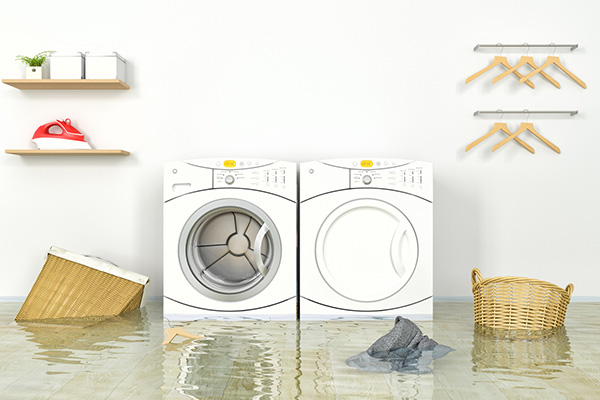Serving Charlotte, Monroe, Concord &
All Of Mecklenburg County
Menu
 Unfortunately, floods can occur unexpectedly, often during inconvenient moments. Because of this, it is crucial to be proactive and prepare for such situations in order to avoid being caught off guard. The best way to prepare yourself is to familiarize yourself with the potential culprits within your home that are likely to cause floods.
Unfortunately, floods can occur unexpectedly, often during inconvenient moments. Because of this, it is crucial to be proactive and prepare for such situations in order to avoid being caught off guard. The best way to prepare yourself is to familiarize yourself with the potential culprits within your home that are likely to cause floods.
Water damage refers to the adverse consequences resulting from the intrusion of water into spaces where its presence can have detrimental effects. This type of damage can be highly destructive, leading to issues like mold and bacteria growth, wood decay, and more. Water damage is a common occurrence because of the number of potential sources. Since water is an integral part of our daily lives, accidents and disasters can arise from numerous unforeseen circumstances. It’s important to understand where water damage is most likely to happen and how to prevent it to avoid costly repairs and possible health hazards. Here are the common causes:
One of the most common causes of water damage is plumbing problems. Leaky pipes, burst pipes, and faulty plumbing fixtures can lead to significant water leaks, causing damage to walls, ceilings, and floors. Old or deteriorating pipes are especially susceptible to leaks, while clogged drains and sewage backups can result in water overflow and extensive damage.
In order to prevent plumbing-related water damage, regular inspections and maintenance are vital. Keep an eye out for signs of leaks, such as dampness, water stains, or an unexplained increase in your water bill. Promptly address any plumbing issues, including repairing leaks, replacing worn-out pipes, and ensuring proper drainage.
A damaged or poorly maintained roof can be a major source of water damage. Missing or damaged shingles, cracked flashing, or compromised sealant can allow water to seep into your home, leading to water stains, mold growth, and structural damage. Regular roof inspections, especially after severe weather events, are essential to identify and address potential roofing issues promptly. Repair or replace damaged shingles, fix any flashing problems, and ensure proper gutter maintenance to redirect water away from your property.
Appliances that utilize water, such as washing machines, dishwashers, and refrigerators, can malfunction or develop leaks, causing water damage. Over time, hoses, fittings, or valves can wear out or become loose, leading to water leaks that may go unnoticed until significant damage occurs.
Regularly inspect and maintain your appliances, paying close attention to water connections, hoses, and valves. Replace any worn-out parts and consider installing water leak detection devices that alert you to potential leaks.
Natural disasters like floods, heavy rainstorms, hurricanes, or snowmelt can result in severe water damage. Excessive water accumulation can overwhelm drainage systems, infiltrate basements, and flood properties, causing extensive destruction.
While natural disasters are uncontrollable, you can take preventive measures to minimize potential damage. Ensure proper grading around your property to redirect water away from your foundation. Install sump pumps and consider using flood barriers or sandbags, especially if you live in flood-prone areas. Additionally, review your insurance policy to ensure adequate coverage for natural disasters.
HVAC systems can also contribute to water damage if not properly maintained. Condensation buildup, clogged drain lines, or malfunctioning components can result in water leaks, leading to damage to walls, ceilings, and floors.
Regularly inspect and clean your HVAC system, paying attention to drain lines, condensation pans, and filters. Schedule professional maintenance to ensure optimal performance and prevent potential water-related issues.
Water damage is a pervasive issue that can occur due to various factors. By understanding the common causes discussed in this blog post, you can take proactive steps to minimize the risk of water damage to your property. Regular inspections, prompt repairs, and preventive maintenance are crucial to safeguarding your home from the destructive effects of water damage. Early intervention is crucial in mitigating damage and reducing potential health risks associated with mold and mildew growth.
If you are experiencing problems with water damage, it’s important to reach out to professionals as soon as possible. The longer that you wait to begin water damage restoration, the more extensive and costly the damage will be. As soon as you notice signs of water damage in your home, it is crucial to contact experts like Restoration 1. Their dedicated team will work diligently to prevent any further complications associated with water damage, ensuring a comprehensive water damage restoration process.